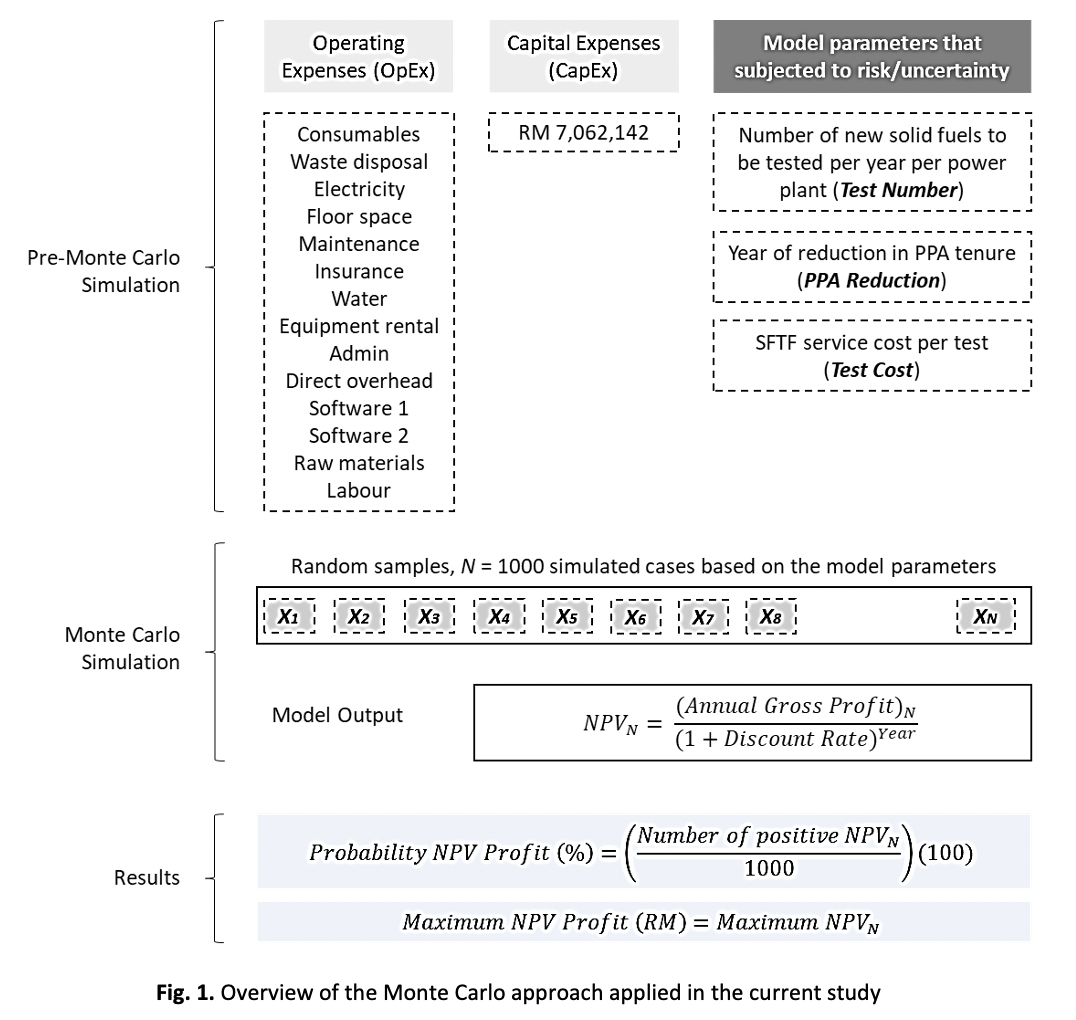Techno-economic Analysis of a Solid Fuel Testing Facility for Thermal Power Plants in Peninsular Malaysia: A Monte Carlo Approach
DOI:
https://doi.org/10.37934/araset.33.2.360370Keywords:
Techno-economic, Monte Carlo, Power Generation, Peninsular Malaysia, Solid Fuel, CoalAbstract
Coal-fired thermal power plants in Peninsular Malaysia are expected to remain operational for at least another 20 years, highlighting the need for clean coal technology adoption. The introduction of new coal types necessitates the verification of their technical viability prior to adoption into power plants, which is addressed by the proposed Solid Fuel Testing Facility (SFTF) system. Hence, this study developed a Monte Carlo-based model to examine the economic factors influencing the profitability of the SFTF system as a solid fuel pre-qualification assessment tool. Three critical factors have been identified as contributors to the SFTF system's economic viability uncertainty: the Test Number, Power Purchase Agreements (PPA) Reduction, and Test Cost. In terms of Net Present Value (NPV) valuation, the Test Number has the highest sensitivity. The projected increase in coal demand necessitating the inclusion of a broader spectrum of new coal variants in power plant operations. As a result, the possibility of an expanded Test Number for the SFTF system exists until the PPA's tenure expires. Therefore, the possibility of favourable NPV outcomes remains prominent throughout the term of the PPA. In contrast, the PPA Reduction has the lowest susceptibility to NPV sensitivity. This demonstrates the SFTF system's ability to navigate policy shifts related to PPA tenure reductions, albeit within a range of 3 to 4 years of reduction. It is suggested that a broader range of parameters be considered in order to gain a more holistic understanding of the economic viability of the proposed SFTF system.
Downloads





























